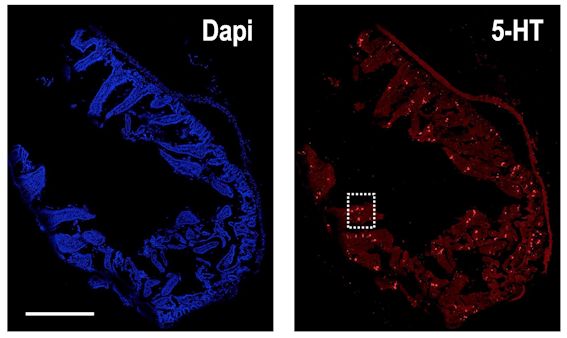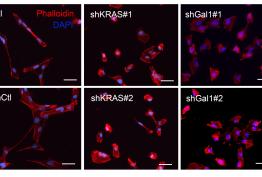The journal Span J Psychiatry Ment Health, Elsevier, has published a review by Analia Bortolozzi, a researcher at the IIBB - CSIC and CIBERSAM - ISCIII and head of the Systems Neuropharmacology group at IDIBAPS.
Serotonin (5-hydroxytryptamine, 5-HT) is an ancient molecule in evolutionary terms. Although it was first discovered in the gastrointestinal tract of rabbits in 1954, its subsequent discovery in the brain quickly attracted attention because of its key role in brain development, the regulation of sleep-wake cycles, appetite and mood, as well as its implicatione in numerous neuropsychiatric disorders such as anxiety, depression and impulsivity, among others. In humans, the major production of serotonin is in the gut, where it regulates the development and neurogenesis of the enteric nervous system, gut motility and secretion, and plays a key role in inflammatory processes and the composition of the gut microbiota.
In recent years, there has been increasing interest in the role of serotonin in brain and gut disorders. For example, Parkinson's disease (PD) and depression co-occur simultaneously with dysfunctions in the gut. In this review, we provide a critical overview of the role of serotonin in the gastrointestinal tract under physiological conditions and in disorders such as PD and depression. We focus on important areas of research such as 1) serotonergic signalling in the gut and its role in controlling α-synuclein protein levels, 2) microbiota composition and tryptophan metabolism, and 3) immune-inflammatory pathways. Thus, serotonergic signalling may be a link between the gut, the microbiota, the immune system and the brain.
Scientists from the University of the Basque Country (UPV) and the National Council for Scientific and Technical Research (CONICET), Argentina, have also participated in the study.







